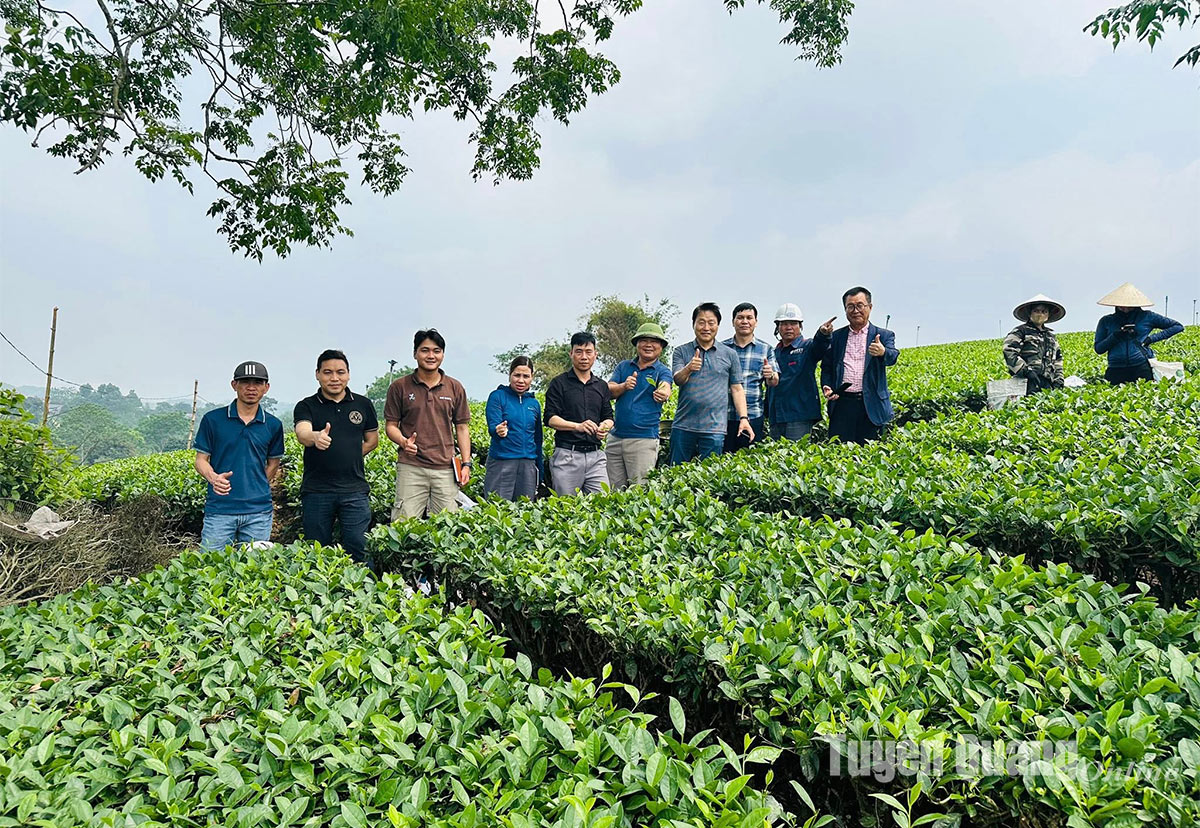Exploiting local advantages
The 99-mountain Homestay Cooperative of Mr. Hoa Van Ba, Na Tong village, Thuong Lam commune (Lam Binh) was introduced by the Provincial Cooperative Union as a successful example in combining agriculture and tourism activities. This is also a cooperative with a unique product, Homestay, which is certified as a 4-star OCOP product and is completing procedures to upgrade to 5 stars.
Director Hoa Van Ba shared: To be evaluated and classified as a 4-star OCOP product, the 99-mountain Homestay tourist destination has undergone a very spectacular process of self-transformation. From a private facility providing spontaneous resort services, Homestay 99 mountains has transformed into a cooperative model, and recently, in July 2023, has become a cooperative.
In addition to its main activities of accommodation and boat services, Homestay 99 mountains Cooperative cooperates with surrounding households to grow wild vegetables and raise pigs and chickens to serve the needs of tourists. At the same time, it cooperates with cooperatives in the area such as Lam Binh Brocade Cooperative, Cold Water Fish Development Cooperative and Ai Au Retreat Service, etc., to build attractive experiential tourism products.

Tourists experience the tea garden at Su Anh Tea Cooperative.
On average, each year, the Cooperative serves about 3,000 domestic and foreign visitors to visit and experience. The income for member households reaches an average of over 20 million VND/month.
Director Hoa Van Ba said that currently, the Cooperative is continuing to expand its membership. At the same time, expand more attractive products such as herbal baths in closed rooms, swimming pools, flower gardens, electric cars, and kayaks.
Shifting the structure of agricultural and rural economy
According to the Provincial Cooperative Union, the model of agricultural cooperatives associated with tourism in the northern mountainous provinces has developed rapidly and effectively. Many cooperatives in the province, after the process of transformation and new establishment, have caught up with this trend. In the province, a number of models have been formed that are considered effective.
In addition to the 99 Mountain Homestay Cooperative, a number of other cooperatives such as Son Tra Cooperative, Hong Thai Commune (Na Hang) processes Shan tea associated with tourism services; Tam Huong Service Tourism Cooperative, Thanh Tuong Commune (Na Hang) produces clean agricultural products associated with tourism; Su Anh Tea Cooperative, My Bang Commune (Yen Son) with clean tea processing and tea garden experience activities...
Mr. Dang Ngoc Pho, Director of Son Tra Cooperative, Hong Thai Commune (Na Hang) said: When Hong Thai developed strongly in tourism and became one of the attractive destinations of Na Hang, the Cooperative decided to expand the service of experiencing Shan tea picking and check-in for tourists. The Cooperative also connected with Homestays in the area to "attract" visitors to experience, and at the same time send products for sale. According to Mr. Pho, thanks to this method, Shan tea products sold increased by about 30% compared to the previous traditional sales channel.
However, it is also necessary to recognize the current reality that tourism activities in Cooperatives mainly develop spontaneously, without planning, lacking connection with tours, so they have not attracted many tourists.
According to the Provincial Cooperative Union, the unit is currently focusing on coordinating with related units to organize training courses on renewing awareness and thinking about human resource development; improving the quality of human resources in tourism activities at agricultural and rural cooperatives. Along with that, it is necessary to organize dialogue sessions to jointly remove difficulties in institutions, policies, and mechanisms for developing agricultural and rural human resources in state management and in agricultural tourism business. Thereby, raising awareness about developing agricultural and rural tourism human resources, creating favorable conditions for cooperatives to do tourism business and being equipped with the capacity to "do" agricultural and rural tourism.

Comment
Print